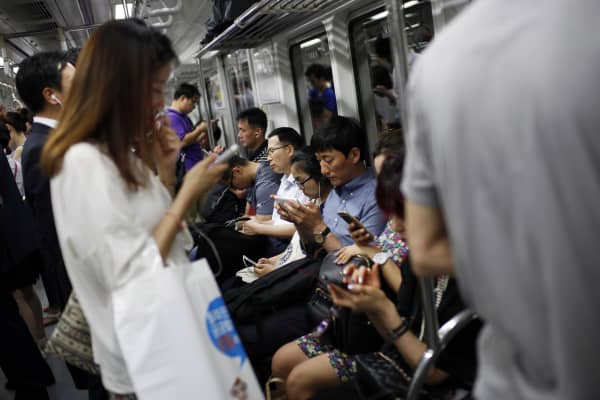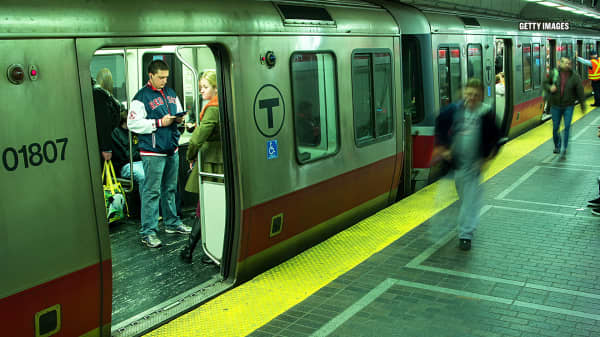
Should commuting count as work?
Up to 60% of commuters on one British railway connected to onboard Wi-Fi after it was introduced, according to a new study. Commuters who were interviewed for the research said they were able to use their traveling time to “catch up” with work and prepare for their day. The researchers said that some commuters in Norwayare able to count their travel time as work, which can lead to a number of benefits.
- Counting commuting time as work could reduce pressure on transportation systems by allowing more flexibility around working times.
- The downside is that such an arrangement may lead to more surveillance of employees. Also, trains and other vehicles would need upgrades to create better working environments.
We are online 24*7. Now it’s more about work life integration than work life balance. Also with rising real estate costs in major metropolitan cities, more people are choosing to stay in the suburbs, making few hours travel time a reality of their daily lives.
I endorse this move for 3 reasons – (says Rajita Kulkarni, President at Sri Sri University)
1) Deep Work- Quiet time on trains ( in the western countries ) allows “Deep Work”- an undisturbed time to think & act. No interruptions by coworkers stopping by, no ringing phones, no unwanted meetings. Research can be done about how this productivity/ accuracy is different from that at actual workplace.
2) Load Balancing traffic/ crowds- This will help get rid of “Peak time” concepts in travel thereby reducing the extraordinary load on public services, road traffic & time taken for travel. It will also allow people to organise their work around personal needs like children’s schedules & other such demands.
3) Increase Happiness- Flexibility, freedom of choice & being recognised for every minute of work put in can be huge catalysts in increasing the sense of well being & happiness. It’s not where we work that should matter, but how well we work.
*** Advertising ***
What can save you some time? See this Blueprint to more Time Freedom when you start your own online business. Or maybe quit your job? Click here >>
Times have changed. Now some employees can work from home, adopt a schedule with flexible hours, and execute work tasks while traveling to and from the office.
Over the last decade, greater access to Wi-Fi on trains and the widespread adoption of smartphones have led to an extension of the traditional working day for many.
Researchers said Thursday that if employees using their commute to work had this time recorded as part of their working day, it would likely “allow for more comfort and flexibility” and ease rush-hour bottlenecks.
In Norway, commuters have been seen to be able to include some travel time as part of their working day, the researchers made note of. This is not the case however in the U.K., so researchers at the University of the West of England (UWE) set out to examine the impact of free Wi-Fi on commuter trains.
They surveyed 5,000 rail passengers traveling on Chiltern Railways trains on two major London routes — from/to Birmingham and Aylesbury — over a 40-week period in 2016 and 2017.
Observing how popular the uptake of free Wi-Fi was, the researchers discovered that many passengers were willing to make use of the complimentary connectivity, increasingly as the amount of free Wi-Fi was extended. Others opted to use their own mobile data.
The UWE study, published Thursday, found that many of those surveyed used their commute to prepare for the day, or to catch up on work tasks, including emails.
Researchers also suggested calling for more available tables, seats and power sources, in addition to sufficient continuous connectivity. To enhance this, investment would be required from train operators and telecom businesses, the university added in an accompanying release.
Presenting the findings at the Royal Geographical Society’s (with IBG) annual international conference, study co-author Dr Juliet Jain said in a statement, “If travel time were to count as work time, there would be many social and economic impacts, as well as implications for the rail industry. It may ease commuter pressure on peak hours and allow for more comfort and flexibility around working times. However, it may also demand more surveillance and accountability for productivity.” (see all the post by Alexandra Gibbs)
*** Advertising ***
Open your own online store! ClickBank gives you tools and software. 12+ internet niches are covered, 100 000+ products/services, all done for you and updated regularle with your affiliate links embedded inside. Click here to see a sample of my Main Storefront>>
Click the image to Open your own store.







